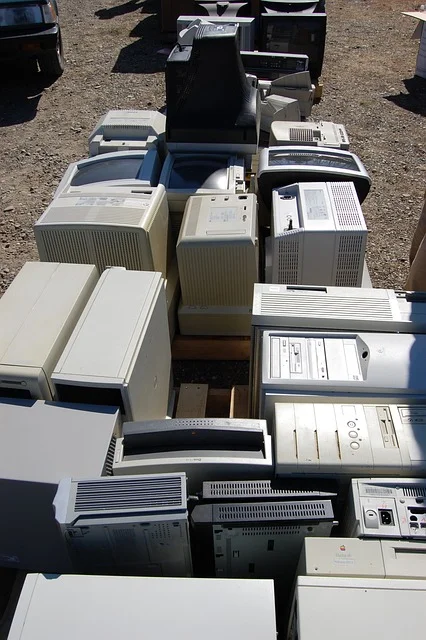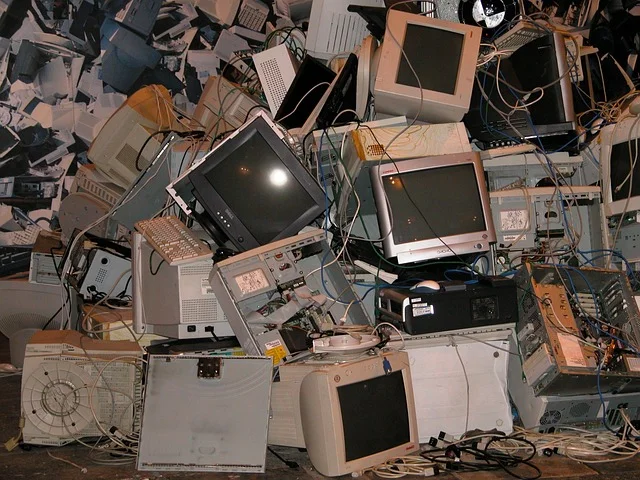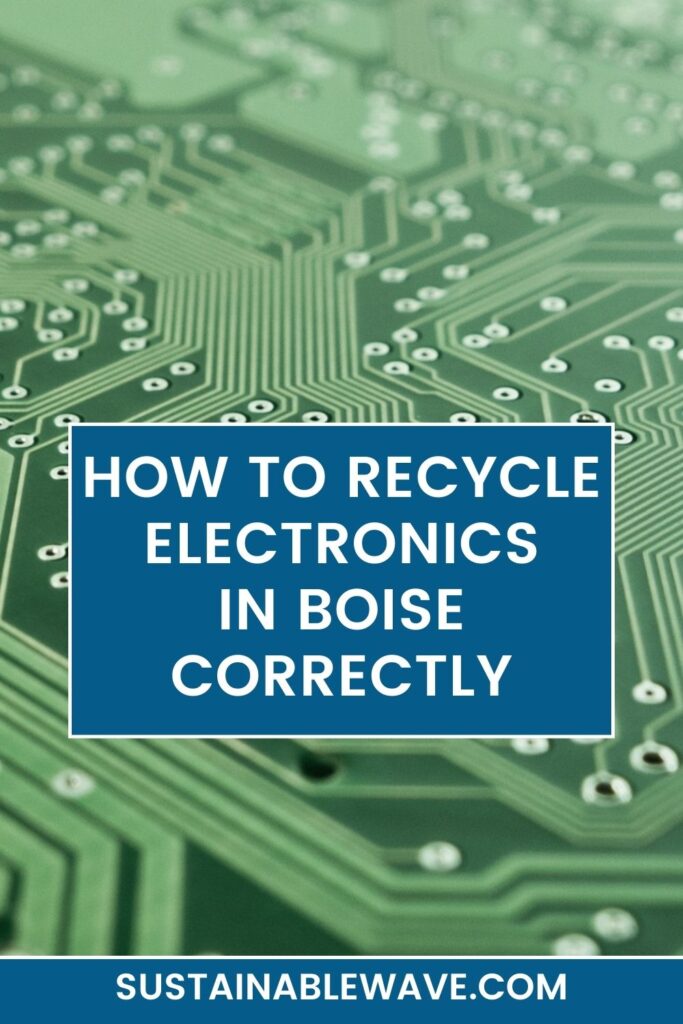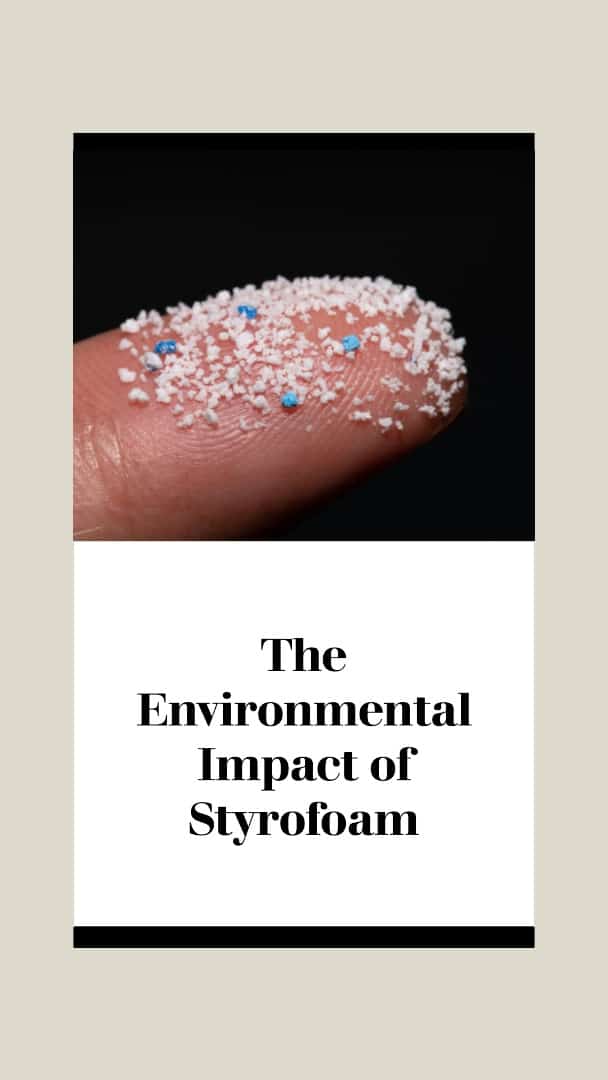Recycling electronics is not just an environmentally responsible act; it’s a crucial step towards sustaining our planet, especially in cities like Boise, Idaho, where technology is integral to daily life. As we increasingly rely on electronic devices for work, communication, and entertainment, the issue of electronic waste (or e-waste) becomes more pressing.
In Boise, you can recycle electronics by taking them to designated recycling centers, participating in community e-waste events, or using retailer take-back programs. Ensure personal data is removed and devices are sorted and cleaned before recycling.
Understanding the proper disposal and recycling methods for electronic devices is essential in a world where technology is ever-evolving, and Boise stands at the forefront of this initiative.
What is Electronics Recycling All About?

Electronics recycling, at its core, is the process of recovering material from old and obsolete electronic devices for reuse in new products. This process involves a series of steps, starting from the collection of electronic waste from homes, businesses, and drop-off centers.
The collected items are then sorted into various categories, such as computers, cell phones, televisions, and other digital devices. Following this, recyclers dismantle these items, separating them into parts. The aim is to salvage metals like copper, aluminum, and gold, as well as plastics and other materials that can be reused.
The significance of electronics recycling lies not just in waste reduction but also in the conservation of resources. Electronic devices are made from a multitude of materials, many of which require significant energy and resources to mine and manufacture.
By recycling electronics, we reduce the need to extract new materials, thereby saving energy and reducing greenhouse gas emissions. Additionally, electronics recycling prevents hazardous substances found in some electronic components, such as lead, mercury, and cadmium, from contaminating the environment.
Why Recycle Electronics?
The importance of recycling electronics cannot be overstated, especially considering the environmental implications of e-waste. When electronic waste is improperly disposed of, it can lead to serious environmental and health problems. Hazardous materials from electronic devices can leach into the soil and water supply, causing contamination that affects both wildlife and human populations.
Moreover, recycling electronics provides significant environmental benefits. It conserves natural resources, as many components of electronic devices can be reused. Recycling metals from e-waste uses considerably less energy compared to mining and processing raw materials, which contributes to reducing carbon emissions and fighting climate change.
On a community level, recycling electronics can stimulate the local economy. It creates jobs in the recycling industry and can foster a circular economy, where materials are continuously repurposed. This not only reduces waste but also promotes sustainable practices in businesses and the community.
Electronic Waste in Boise
Boise, a city renowned for its natural beauty and strong community spirit, is facing a growing challenge with electronic waste. As the city’s population and its reliance on technology increase, so does the volume of e-waste. This waste, if not properly managed, can pose significant environmental and health risks.
The city’s infrastructure for handling e-waste is constantly evolving, aiming to meet the needs of both residents and businesses. Various initiatives and programs have been launched to encourage responsible e-waste disposal and recycling.
However, the challenge remains in educating the public about the importance of e-waste management and in providing accessible and efficient recycling options.
The statistics show a rising trend in e-waste generation in Boise, indicating an urgent need for effective solutions and widespread participation in recycling programs.
How to Prepare Electronics for Recycling

Preparing electronics for recycling involves a few crucial steps to ensure the process is efficient and secure:
- Secure Personal Data:
- Back up important files.
- Perform a factory reset on devices.
- Use data destruction software if necessary.
- Sort and Organize:
- Categorize electronics by type (e.g., phones, computers, appliances).
- Separate components like batteries and cartridges.
- Clean Your Devices:
- Remove dust and dirt.
- Ensure devices are free of liquids or sticky substances.
- Remove Non-recyclable Elements:
- Take off any stickers or non-electronic parts that might hinder the recycling process.
Where to Recycle Electronics in Boise
Boise offers a variety of options for responsibly disposing of electronic waste:
- Designated Recycling Centers:
- Check local listings for addresses and operating hours.
- Understand the types of electronics accepted.
- Community Recycling Events:
- Participate in city-organized e-waste collection drives.
- Look out for announcements in local media or city websites.
- Retailer Take-Back Programs:
- Inquire at local electronics stores for recycling programs.
- Some retailers offer trade-in deals or discounts on new purchases.
Recycling at Home
Effective recycling of electronics at home in Boise includes a proactive and responsible approach:
- Extend the Life of Electronics:
- Regularly maintain and repair devices.
- Upgrade hardware instead of buying new when possible.
- Donate or Sell Functional Electronics:
- Give away or sell still-usable electronics to schools, charities, or through online marketplaces.
- Set Up a Home Recycling Station:
- Dedicate a space for collecting small e-waste items like batteries and cables.
- Store until enough accumulates for a trip to a recycling center.
- Stay Informed:
- Keep up with the latest in e-waste recycling practices and local regulations.
Challenges in Electronics Recycling
Electronics recycling faces several challenges that can complicate the process.
One of the primary issues is the rapid advancement in technology, which leads to a constant influx of new types of electronic devices, each with different recycling requirements. This variability makes it difficult for recycling centers to keep up with the necessary equipment and processes for efficient recycling.
Another challenge is the safe and effective extraction of hazardous materials found in some electronics, which requires specialized handling to prevent environmental contamination and health risks. Logistical challenges, such as the collection and transportation of e-waste, especially from remote or underserved areas, also pose significant hurdles.
Furthermore, public awareness and participation levels vary, with many individuals still unaware of the importance of electronics recycling or the options available to them. Addressing these challenges requires a multi-faceted approach, involving technological innovation, policy support, and public education.
Innovative Recycling Methods
In response to the challenges in electronics recycling, various innovative methods are being developed and implemented.
These include advanced sorting technologies that can more efficiently separate different materials for recycling. Innovations in chemical processing are also making it safer and more effective to extract valuable materials from electronic waste, reducing the reliance on traditional, more environmentally harmful methods.
Another area of innovation is in the design of electronics themselves – manufacturers are increasingly focusing on creating products that are easier to recycle, with fewer hazardous components and more standardized designs.
Some companies are experimenting with using recycled materials in new electronic products, closing the recycling loop and reducing the need for new raw materials. These innovative methods not only improve the efficiency of the recycling process but also contribute to a more sustainable approach to managing electronic waste.

I’m Thomas, the owner of SustainableWave. Passionately promoting a sustainable planet. With experience in various eco-roles, I’ll share green tips, sustainability hacks, and personal eco-journeys on my blog.






